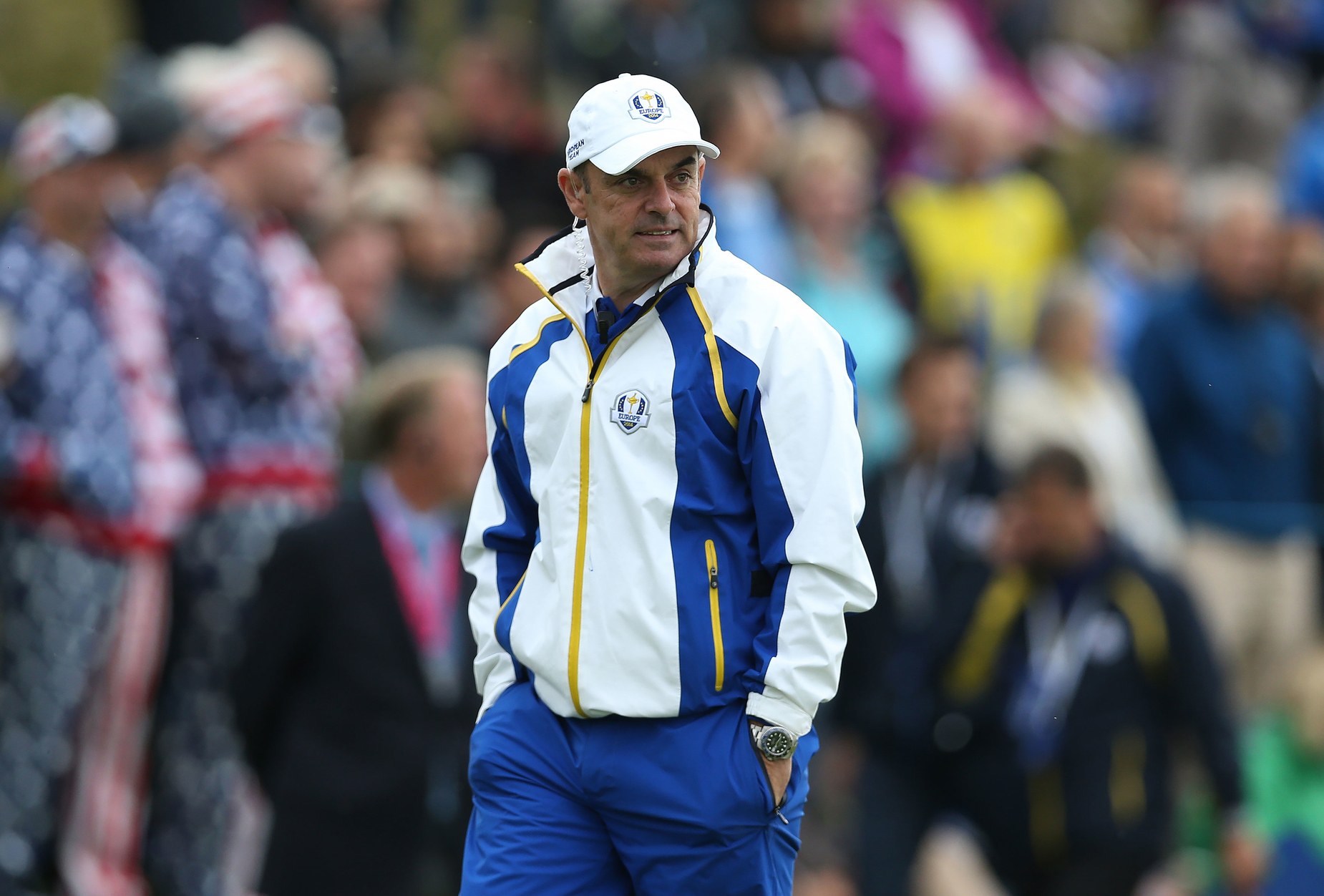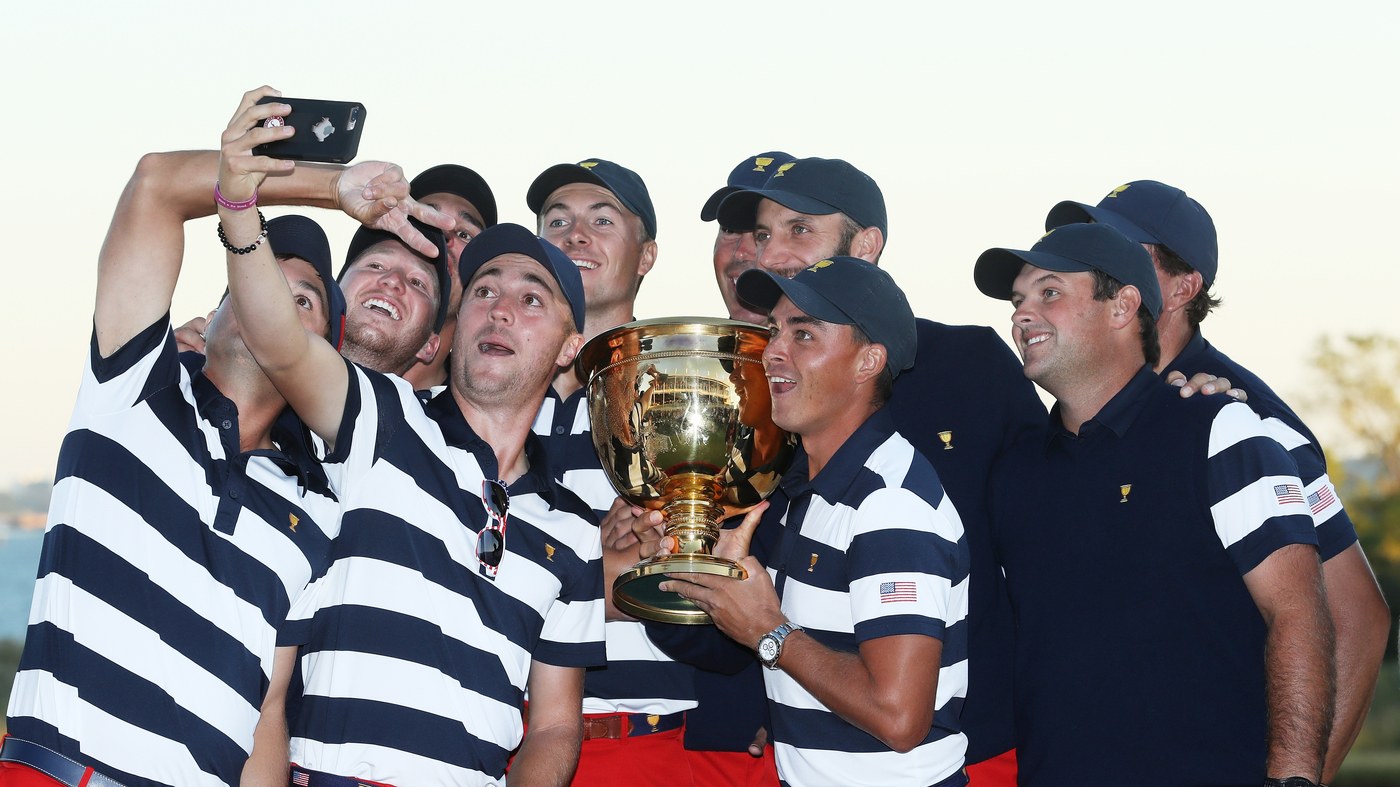By John Huggan
Paul McGinley knows a few things about beating Americans in team events. And nothing at all about losing. Three times the 52-year-old Irishman was part of a winning European Ryder Cup side—he holed the clinching putt at The Belfry in his debut in 2002—and he was the highly-acclaimed non-playing captain when the Old World comprehensively beat the New at Gleneagles in 2014. In terms of preparation and planning, McGinley took the once ceremonial role to new levels of ingenuity and thoroughness.
Having paired with current European Ryder Cup skipper Padraig Harrington to claim the 1997 World Cup for Ireland, effective partnership is another area of expertise for McGinley. So when for the four-time European Tour winner expresses concern over some of the decision-making he sees going into the statistically superior United States squad’s preparation for the upcoming Presidents Cup against the Internationals at Royal Melbourne, his is an opinion worthy of note.
“There are a number of headwinds lining up against the American team,” says McGinley, who also twice led Great Britain & Ireland to victory over the Continent of Europe in the now defunct Seve Trophy. “I know people will point at the pronounced difference in the average World Ranking on either side. They do that before every Ryder Cup, too. As usual, the Americans look like much better players on paper.
“But let’s take a closer look at those rankings. They are based on performance in 72-hole stroke-play tournaments over a 52-week period. But the Ryder Cup and the Presidents Cup consist of 18-hole matches—often played with a partner—on a different type of course. Apart from anything else, that’s a whole different mind-set. So no data analyst would directly compare stroke play and match play to arrive at any meaningful conclusion. They are completely different dynamics.”

Ian MacNicol/Getty Images
McGinley knows from beating the U.S. in team competitions and believes the Americans must guard against overconfidence at Royal Melbourne.
OK, fair enough. But what exactly have the Americans got wrong in the build-up to a contest in which they have a 10-1-1 record all-time, including a 19-11 shellacking of the Internationals two years ago at Liberty National? Has a touch of arrogance and, dare we say it, complacency crept in?
“To be honest, the Americans are playing with fire,” McGinley says. “There are a lot of factors against them this time. A few of the players are out of form. The FedEx Cup finished in August and some of them have hardly played since. For those playing at the Hero Challenge in the Bahamas this week, jet lag is going to be a massive issue. They are very comfortable playing long, soft, wet golf courses. But Royal Melbourne isn’t going to be anything like the PGA Tour.”
That’s already a lot of potential negatives. But McGinley has more.
“Generally, Americans don’t like a lot of wind,” he says. “It’s going to be windy. The course will be firm and fast. Wouldn’t it have been better to play the Hero event the week after the Presidents Cup so that his players could tee-up in the Australian Open and at least get over the jet lag?”
Despite the fact that only on Day 3 of the four-day Presidents Cup is there more than one session of matches, McGinley also is clearly wary of U.S. skipper Tiger Woods taking on two roles.
“It will be difficult for Tiger to play and be captain,” McGinley says. “That is such a difficult dynamic. It will take away a bit of his focus. There is a time and a place to be a captain down the road. Tiger is still a player, a very important player. They should be spending a lot of time trying to come up with the best partners for him. The whole idea of the so-called Task Force was to get everyone ready for Ryder Cups going forward. They did all that and won the last Presidents Cup easily. But then they went to France for last year’s Ryder Cup and were patently not prepared for the exam. That should serve as a warning this time round.”
Ah yes, the golf course. Royal Melbourne’s composite layout is both the best 18 holes in the southern hemisphere and one of the most strategic tests on the planet. Raw power is useful, but not nearly as much as planning and positioning. Which sounds a lot like Le Golf National outside Paris, a course the Americans singularly failed to master a year ago.
“You can talk all you want about team spirit and pairings, but [Le Golf National] required a 2-iron to play it well,” McGinley says. “You needed to know it. You needed to be ready for a course that is alien to what is seen on the PGA Tour. So the Americans came over, took a look and wondered what it was all about. They were caught on the hop. They weren’t ready for it. Then they resented the fact that it was the way it was. They didn’t enjoy the challenge because they weren’t able to. You have to be ready to take the exam.”
The same is true of the International team, although the indications are that most of them will arrive better prepared for the conditions they’ll face at Royal Melbourne than their opponents. Seven of the 12 are playing in this week’s Australian Open. Still, questions remain about this necessarily diverse group. What has International captain Ernie Els done behind the scenes? What has assistant skipper Geoff Ogilvy done behind the scenes, on a course where he lives?
“If the Internationals are in a good place, like the Europeans generally are for the Ryder Cup, I really do think that the Americans are facing real challenges,” McGinley says. “It would still take a brave man to bet against them. And I’m not saying that I will do so. But this is going to be interesting. This is not lined up the way many people seem to think. It is certainly not a home run for the visitors. If the Internationals are ready and prepared, they have a lot of things going for them.”









